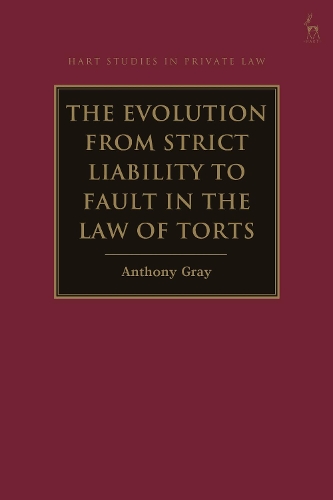
The Evolution from Strict Liability to Fault in the Law of Torts
(Paperback)
Available Formats
Publishing Details
The Evolution from Strict Liability to Fault in the Law of Torts
By (Author) Professor Anthony Gray
Bloomsbury Publishing PLC
Hart Publishing
20th October 2022
United Kingdom
Classifications
Tertiary Education
Non Fiction
Administrative jurisdiction and public administration
346.41033
Physical Properties
Paperback
296
Width 232mm, Height 154mm, Spine 18mm
460g
Description
Gradually, the law of tort has shifted away from a strict-liability approach to one where fault predominates. This book charts important case law documenting this shift. It seeks to understand how and why it occurred. Given that the Rylands v Fletcher decision is typically seen as a prime exemplar of strict liability, it focusses particularly on that case, as part of the historical development of tort law. It considers the intellectual arguments made in favour of strict liability, and for fault-based liability. Having done so, it then focusses on particular areas of the law of tort, including nuisance, defamation and trespass. It is somewhat anomalous that though most would view these as examples of torts of strict liability, fault considerations have become prominent in their application. This presents an uneasy compromise, where torts that are notionally strict in nature are infused with fault considerations, often through exceptions or defences. This book advocates for further development in the law of tort to better reflect a primarily fault-based approach to liability, at least in the common law. This would make the law of tort more coherent.
Reviews
Of great interest for comparatists it is guaranteed to provide a useful and interesting companion for any scholar working comparatively with the torts at issue. -- Andrew Bell * Journal of European Tort Law *
Author Bio
Anthony Gray is Professor of Law at the University of Southern Queensland, Australia.
